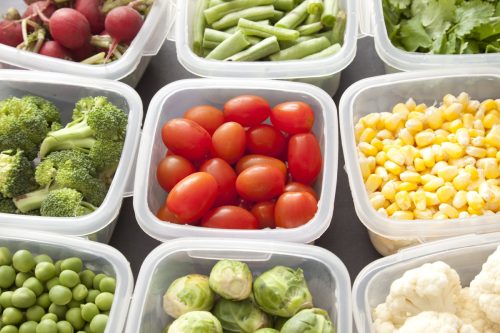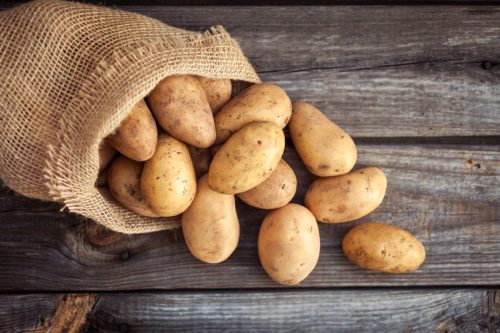This way of cooking potatoes can increase your risk of developing diabetes
Potatoes are probably one the most nutritious vegetables. versatile veggies: Potatoes are a great addition to any meal. There are so many ways to make them. A new study found that potatoes’ cooking methods may matter more than you might think. A few different cooking methods can increase your chance of developing diabetes. However, other methods may have a less dramatic effect. You may want to avoid certain potato preparations.
READ THIS: The Surprising Reason Leaving the Lights on at Night Spikes Your Diabetes Risk.
Diabetes is becoming more common. According to a study, 537 million people with diabetes between 20 and 79 were affected in 2021. recently published The journal Diabetes Care 28 October. This number is expected to rise to 643 million by 2030.
Researchers believe this rise could be due to an increase in processed foods and a decrease of fruit and vegetable intake. Studies are currently being done to assess the effect of vegetables on type 2 diabetes (T2D). However, results have been inconsistent. In some studies, higher vegetable intake was associated with a lower chance of developing diabetes. Other studies found no link between increased vegetable intake and a lower risk.
Researchers discovered that potatoes are different from other vegetables in the most recent study. “mask the association” Between vegetable intake and T2D. Veggies Do Researchers concluded that there are benefits to T2D. Those who ate more vegetables (but not potatoes) had a 21 per cent lower chance of developing it.
With this knowledge, they began to examine the relationship between potatoes, diabetes risk, and how potatoes are prepared.

You can be sure that if you love potatoes, it won’t increase your diabetes risk.
Researchers examined data from 54.793 participants in the Danish Diet Cancer and Health survey. 7,695 people eventually developed T2D during 16.3 years. The study found that diabetes risk increased when participants ate potatoes in three key variations—fried, mashed, and potato chips. However, boiled potatoes didn’t increase or decrease the risk.
While this may not sound all that surprising, the key aspect of the study is that in general, potatoes aren’t going to increase diabetes risk, Juliana Tamayo, registered dietitian FitnessClone.com editor. “What makes diabetes worse or increases the risk for diabetes is the way potatoes are prepared and the ingredients they are paired with,” She tells Best Life.
Tamayo points to the fact that potatoes’ nutrient content is affected by how they are cooked. Boiling potatoes does not have any additional ingredients that alter their composition.
“Mashed potatoes, fried potatoes, and potato chips all contain added fat [and] salt,” Tamayo points out that condiments accompanying them are often high in fat and sugar. “Mashed potatoes are often prepared with whole milk or heavy cream, butter, and salt, all of which can increase the risk for high cholesterol, high blood pressure, and exacerbate diabetes. Fried potatoes and potato chips are usually made in vegetable or peanut oil, which is higher in saturated fat.”
Get more health news delivered directly to your inbox sign up for our daily newsletter.

Researchers also considered the typical diet of people who consume large amounts of potatoes, which was not possible in previous studies. This includes red meat, It is a known risk factor of T2D and could impact the likelihood of developing it, according to the lead author of the study. Nicola BondonnoMedical News Today was informed by Dr. Judith, PhD, a postdoctoral researcher fellow at Edith Cowan University, Perth, Australia.
But it’s not just overall diet—it does come out to the potatoes. Chips and fries have a higher carbohydrate count and are starchy. “These types of foods make your body produce more insulin to control blood sugars, and if eaten in higher quantities, may cause you to gain weight in the abdomen, which can cause insulin resistance, which can lead to type 2 diabetes,” Jason NgThe outlet was told by Dr. Michael Rieger, MD, a clinical associate professor of Medicine and chairperson of University of Pittsburgh’s Diabetes Taskforce.
Bondonno stated that vegetables are rich in vitamins and low calories. While it’s unclear exactly why eating vegetables lowers T2D risk, it could be tied to lower resultant body mass index (BMI) and weight, Medical News Today reported.

Researchers found that people who ate more potatoes (excluding chips) had a 9 per cent higher chance of developing diabetes than those who ate less. Medical professionals agree that potatoes can be a part of a healthy, balanced diet.
Tamayo recommends that potatoes are prepared in olive oils without adding salt. You can also help leave their nutritional value intact by baking, grilling, sautéing, or boiling, she says, adding that you should also consider what you serve alongside your spuds.
“Try pairing your potatoes with a lean protein, like poultry or fish, and fiber, such as a salad or vegetables,” She said. “Eating carbohydrates paired with protein will slow down their absorption, ultimately leading to more controlled blood sugar levels.”
" Conservative News Daily does not always share or support the views and opinions expressed here; they are just those of the writer."




Now loading...